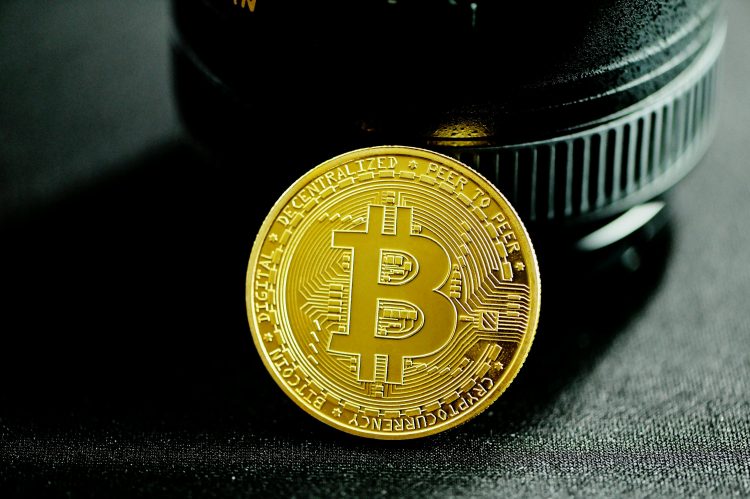Why Should Beginners Trade Crypto With Caution?
Note: This post may contain affiliate links, and we may earn a commission (with No additional cost for you) if you make a purchase via our link. See our disclosure for more info. The crypto world is constantly changing. This content is for informational purposes only and not financial, legal, or professional advice So, please verify the info on the cryptocurrency provider’s websites.
Click below and listen to the podcast about this page.
You've heard of the huge gains some made in crypto. But, have you thought about the risks? As a beginner, you face a world of high volatility and unclear rules. Quick profits can be tempting. But, the crypto market isn't for the faint of heart. You'll face challenges. These include complex technology, scams, and your own emotions. Before you plunge in, ask: Are you ready for the risks of this high-stakes digital frontier?
Key Takeaways
- Extreme market volatility can lead to significant financial losses, with cryptocurrencies experiencing rapid price swings.
- Lack of regulatory protection exposes beginners to scams, market manipulation, and potential loss of funds.
- Complex technology and terminology create a steep learning curve for newcomers to the crypto space.
- Emotional trading pitfalls, such as FOMO and panic selling, can result in poor decision-making and financial losses.
- Limited market history and the high-risk nature of cryptocurrencies make informed trading decisions challenging for beginners.
Extreme Market Volatility
Why is trading cryptocurrencies often compared to riding a rollercoaster? The answer lies in the extreme market volatility that characterizes the crypto trading landscape. Cryptocurrencies are known for their rapid price swings, which can lead to both significant gains and substantial losses.
For example, Bitcoin experienced drops of 73% in 2018 and 64% in 2022, highlighting the potential for extreme price fluctuations.
This volatility is influenced by various factors, including:
- Trader sentiment and market psychology
- External news events
- Low liquidity in certain cryptocurrencies
For beginners, steering through these unpredictable waters can be particularly challenging. The 24/7 nature of crypto trading means prices can shift dramatically at any time, requiring constant monitoring.
This environment can easily lead to emotional trading decisions, which often result in poor outcomes.
It's essential to understand that while the potential for high returns exists (as demonstrated by Bitcoin's 302% gain in 2020), these opportunities come with substantial risks.
The combination of market volatility and low liquidity can create situations where executing trades at desired prices becomes difficult, further complicating the trading process for newcomers to the crypto market.
Lack of Regulatory Protection
Nearly all crypto traders face a significant challenge: the lack of regulatory protection in the cryptocurrency market. This absence of oversight exposes investors to various risks, including scams, market manipulation, and potential financial losses.
Unlike traditional financial markets, crypto exchanges often lack investor protection mechanisms, such as deposit insurance, leaving users vulnerable if an exchange fails or is hacked.
The unregulated nature of crypto trading also increases the likelihood of market manipulation schemes. “Pump and dump” tactics are common, especially among lesser-known altcoins, leading to sudden price fluctuations that can catch inexperienced traders off guard.
Additionally, the lack of clear regulatory frameworks means that policies can change rapidly, potentially causing sudden price drops or legal issues for traders.
To protect yourself when trading crypto:
- Research thoroughly before investing
- Use reputable exchanges with strong security measures
- Diversify your portfolio to spread risk
- Stay informed about regulatory changes in your jurisdiction
- Be wary of promises of guaranteed returns or “get rich quick” schemes

Complex Technology and Terminology
As you enter the world of cryptocurrency trading, you'll encounter a steep learning curve due to the complex technology and terminology involved.
You'll need to grasp blockchain fundamentals, understand the intricacies of wallets and private keys, and familiarize yourself with over 20,000 different cryptocurrencies and their unique features.
The jargon-heavy ecosystem, including terms like “market cap,” “liquidity,” and “smart contracts,” can be overwhelming, but mastering these concepts is essential for making informed trading decisions.
Steep Learning Curve
The steep learning curve of cryptocurrency trading can be intimidating for newcomers. To navigate the volatile cryptocurrency market successfully, you'll need to grasp complex concepts and terminology.
Understanding blockchain technology, which underpins digital assets, requires familiarity with decentralization, consensus mechanisms, and cryptographic security. You'll also encounter terms like “wallets,” “private keys,” and “smart contracts,” which are essential for managing your investments.
Market psychology plays a significant role in the cryptocurrency market's volatility. Interpreting trader sentiment and its impact on prices demands experience and insight.
As a beginner, you'll need to familiarize yourself with various trading strategies, such as day trading and dollar-cost averaging, each with its own set of rules and terminologies.
Moreover, with over 20,000 cryptocurrencies available, understanding the unique features and risks associated with each one adds another layer of complexity.
This steep learning curve underscores the importance of approaching cryptocurrency investing with caution. Before committing significant funds, take the time to educate yourself thoroughly, practice with small amounts, and consider seeking professional financial advice to navigate this challenging but potentially rewarding market.
Jargon-Heavy Ecosystem
Steering through the cryptocurrency ecosystem can feel like learning a new language. The jargon-heavy landscape is filled with complex terms and acronyms that can overwhelm beginners.
You'll encounter technical terms like “blockchain,” “smart contracts,” and “DeFi,” which are fundamental to understanding how cryptocurrencies function. Storage solutions are described as “hot wallets” or “cold wallets,” each with different security implications.
When investing in cryptocurrencies, you'll need to grasp concepts such as:
- Market capitalization: A key metric for evaluating a cryptocurrency's value
- Liquidity: The ease of buying or selling without significant price impact
- Consensus mechanisms: “Proof-of-work” vs. “proof-of-stake”
These factors influence trading decisions and potential risks. Additionally, acronyms like “ICO” and “NFT” are prevalent in discussions, making it challenging to distinguish legitimate opportunities from scams.
To navigate this complex ecosystem safely:
- Take time to learn the terminology
- Research thoroughly before investing
- Be cautious of unfamiliar concepts
- Seek reliable sources for information
Understanding the jargon is essential for making informed decisions and avoiding pitfalls in the cryptocurrency market.

Blockchain Fundamentals Complexity
Beyond the jargon-heavy ecosystem lies an even more intricate layer of complexity: blockchain fundamentals. As a beginner, you'll need to grasp the core concepts of blockchain technology, which forms the backbone of cryptocurrencies. This includes understanding:
- Decentralized ledgers: The distributed nature of transaction records
- Cryptographic hashing: The process of securing and validating data
- Consensus mechanisms: How network participants agree on transaction validity
You'll also encounter challenges in comprehending transaction validation and network security protocols, which vary among different cryptocurrencies. These intricacies directly impact cryptocurrency prices and your investment strategies.
Additionally, you must consider blockchain scalability issues, such as:
- Transaction speed limitations
- Network congestion during high-volume periods
Understanding smart contracts and their implications for automated, trustless transactions is essential for maneuvering certain cryptocurrencies' ecosystems.
Lastly, be aware of blockchain forks and updates. These can greatly alter a cryptocurrency's functionality and value, potentially affecting your investments.
Susceptibility to Scams
Cryptocurrency's allure has a dark side: its heightened susceptibility to scams. As you navigate the world of digital currency, it's vital to understand the risks involved. The largely unregulated nature of the crypto market has made it a breeding ground for fraudulent activities, with billions lost annually to scams.
To protect yourself when you buy and sell cryptocurrency, consider these key points:
- Be wary of unsolicited investment opportunities, especially on social media.
- Research thoroughly before investing in any project or exchange.
- Don't fall for promises of guaranteed high returns or pressure to invest quickly.
- Use reputable exchanges and wallets with strong security measures.
Inexperienced traders are particularly vulnerable to scams like Ponzi schemes, fake ICOs, and fraudulent exchanges.
These scams often prey on the fear of missing out and lack of understanding about blockchain technology. Remember, once your funds are lost to a crypto scam, they're nearly impossible to recover.
Exercise extreme caution with your investments in this volatile market. Always conduct thorough research and approach cryptocurrency trading with a healthy dose of skepticism to safeguard your financial interests.
Emotional Trading Pitfalls
As a crypto trader, you're likely to encounter the fear and greed cycle, which can lead to impulsive decisions driven by FOMO (fear of missing out).
You might feel an urge to buy when prices are rising rapidly or panic-sell during market downturns, both of which can result in significant losses.
Additionally, overconfidence in your ability to predict market movements can cloud your judgment, causing you to take unnecessary risks and potentially jeopardize your investment strategy.
Fear and Greed Cycle
Emotions can be a trader's worst enemy in the volatile world of cryptocurrency. The fear and greed cycle greatly impacts cryptocurrency trading, often leading to impulsive buying and excessive risk-taking.
Emotional trading can result in substantial losses, with studies showing that traders who let emotions dictate their actions may lose over 40% of their capital. Market volatility, such as Bitcoin's 73% drop in 2018, can intensify emotional reactions, causing traders to panic sell or hold onto losing positions longer than advisable.
To counteract the fear and greed cycle and improve your trading outcomes, consider implementing a disciplined trading strategy. This approach can help mitigate emotional decision-making and protect your investments.
Key elements of a disciplined strategy include:
- Setting stop-loss orders to limit potential losses
- Establishing predefined entry and exit points for trades
- Conducting thorough research before making investment decisions
- Avoiding reactionary trading based on sensational news or social media hype

Fomo-Driven Impulsive Decisions
FOMO, or the fear of missing out, can drive even the most level-headed traders to make impulsive decisions in the cryptocurrency market. This emotional trading can lead to significant financial setbacks, with studies showing that over 70% of day traders lose money primarily due to FOMO-driven choices.
Beginners are particularly susceptible to FOMO, often lacking the experience to manage emotional responses effectively. In fact, research indicates that emotional trading is responsible for approximately 90% of trading losses in the crypto space.
The high volatility of cryptocurrency markets, exemplified by Bitcoin's price swings of over 70% in recent years, further exacerbates these risks.
To avoid falling into the FOMO trap:
- Develop a solid strategy before entering the market
- Resist the urge to react impulsively to news events or social media trends
- Be aware of market corrections and avoid buying at inflated prices
- Understand that emotional decision-making can lead to selling at losses
Overconfidence in Predictions
While many traders enter the cryptocurrency market with high hopes, overconfidence in predictions can quickly lead to their downfall. This emotional trading pitfall often results in impulsive decisions based on short-term price movements rather than long-term analysis.
Novice traders, in particular, tend to underestimate market risks, contributing to the high failure rate among day traders.
To avoid falling into the trap of overconfidence, consider these key points:
- Recognize historical volatility: Bitcoin has experienced significant drops, including 73% in 2018 and 64% in 2022.
- Develop a disciplined trading plan: Consistent decision-making is essential for long-term profitability.
- Focus on risk management: Approach trading with caution, especially as a beginner.
- Avoid trading based on sentiment: Fear of missing out or panic selling can cloud judgment.
Research shows that during bull markets, traders often become overly optimistic, ignoring past market patterns. This overconfidence can lead to emotional trading, where decisions are driven by sentiment rather than sound strategies.
Cybersecurity Risks
With the explosive growth of cryptocurrency trading, cybersecurity risks have become a paramount concern for investors and traders alike. The cryptocurrency sector lost over $14 billion to hacks and scams in 2021, highlighting the need for heightened security measures. As you navigate the world of crypto trading, it's essential to understand the potential threats you may encounter.
| Cybersecurity Risk | Description |
|---|---|
| Hot Wallets | Connected to the internet, making up 60% of hacking incidents |
| Phishing Attacks | Over 3 million reported in 2022, targeting sensitive information |
| Decentralized Exchanges | Lack regulatory oversight, exposing users to higher risks |
| Ransomware Attacks | Demand payment in cryptocurrencies, exploiting traders |
| Criminal Exploitation | Potential for theft and fraud targeting crypto assets |
To protect yourself from these security challenges, you should prioritize using secure storage methods for your digital assets. Avoid keeping large amounts in hot wallets, and instead opt for cold storage solutions. Be vigilant against phishing attempts by verifying the authenticity of websites and communications. When using decentralized exchanges, thoroughly research their security measures and track record. By staying informed about these risks and implementing robust security practices, you can markedly reduce your vulnerability to cyber threats in the crypto trading space.
Limited Market History
Steering through the cryptocurrency market can feel like charting unexplored waters due to its limited historical data. Unlike traditional financial markets with decades or centuries of performance history, the crypto market's youth presents unique challenges for beginners. This limited market history makes it highly risky to invest in cryptocurrency without careful consideration.
The volatile nature of crypto trading is evident in Bitcoin's extreme price fluctuations. For example, it reached a peak of over $68,000 in November 2021, only to experience a sharp decline shortly after. This unpredictability is further illustrated by:
- Bitcoin's 73% drop in 2018
- A 64% decline in 2022
- Over 20,000 cryptocurrencies with insufficient data
- Market influence by speculative trading and external events
These factors make it challenging for crypto traders to base decisions on historical performance or market fundamentals. The lack of long-term trends and stability, typically relied upon by beginners, adds to the complexity.
While some may find the potential for high returns appealing, it's essential to approach cryptocurrency investments with caution, recognizing that they exhibit characteristics unlike traditional financial assets.

High-Risk, High-Reward Nature
The cryptocurrency market's volatile nature creates a high-risk, high-reward environment that can be both exhilarating and dangerous for traders. When you engage in trading in cryptocurrency, you're exposed to potential significant financial losses, as evidenced by Bitcoin's 73% price drop in 2018 and 64% decline in 2022.
However, the allure of high-reward potential remains strong, with Bitcoin's impressive gains of 302% in 2020 and 156% in 2023.
As a beginner, it's essential to approach crypto trading with caution:
- Avoid emotional trading driven by FOMO, which can lead to impulsive buy or sell decisions.
- Be aware of market manipulation tactics, such as pump and dump schemes, in the largely unregulated crypto space.
- Conduct thorough research before investing, focusing on well-established cryptocurrencies like Bitcoin and Ethereum.
Remember that the crypto market is highly sensitive to news events, which can trigger sharp price swings.
To mitigate risks:
- Start with a small investment you can afford to lose.
- Diversify your portfolio across different cryptocurrencies.
- Stay informed about market trends and regulatory developments.
- Use reputable exchanges and secure wallets to protect your assets.
Frequently Asked Questions
Which Crypto Trading Strategy Is Best for Beginners?
As a beginner in crypto trading, you'll find dollar-cost averaging to be the most suitable strategy.
It involves investing a fixed amount regularly, which helps mitigate market volatility. This approach allows you to build your portfolio steadily over time, reducing the risk of significant losses.
By consistently buying crypto assets regardless of price fluctuations, you'll average out your purchase costs and potentially benefit from long-term market growth.
It's a low-stress method that doesn't require constant market monitoring, making it ideal for newcomers.
What Mistakes Do Most Crypto Traders Make?
Crypto traders often make several common mistakes:
- You might trade emotionally, letting fear or greed drive decisions.
- You could neglect proper risk management, failing to set stop-loss orders.
- You may underestimate the importance of thorough research.
- You might rely too heavily on social media hype without due diligence.
- You could lack a clear trading plan with defined entry and exit points.
These errors can lead to impulsive trades, substantial losses, and missed opportunities.
To succeed, develop a disciplined strategy, manage risks effectively, and conduct thorough research before investing.
What Should I Know Before Starting Trading Cryptocurrencies?
Before starting cryptocurrency trading, you should:
- Understand market volatility and its impact on investments.
- Develop emotional discipline to avoid impulsive decisions.
- Research thoroughly, including technology and project goals.
- Create a clear trading strategy with defined entry/exit points.
- Implement risk management techniques like stop-loss orders.
- Diversify your portfolio to spread risk.
- Be aware of regulatory and tax implications in your country.
- Start with a small investment to gain experience.
- Use reputable exchanges and secure wallets for transactions.
- Stay informed about market trends and news affecting cryptocurrencies.
What Is the Most Important Rule When Starting Investing in Cryptocurrency?
The most important rule when starting to invest in cryptocurrency is never to invest more than you can afford to lose.
This principle is essential due to the highly volatile nature of the crypto market. You should approach crypto investments with caution, understanding that significant price swings are common.
By limiting your investment to an amount you're comfortable losing, you'll protect yourself from potential financial hardship while still participating in this emerging market.
Conclusion
As a beginner, you should approach crypto trading with caution. You'll face extreme market volatility, lack of regulatory protection, and complex technology. You're also susceptible to scams, emotional trading pitfalls, and cybersecurity risks. The limited market history and high-risk nature of cryptocurrencies add to the challenges. To navigate this landscape, you'll need to do thorough research. Use strict strategies and strong risk management. The rewards are high, but so are the risks.









